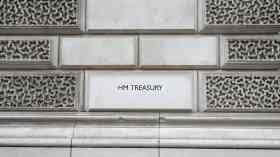Sue Robb of 4Children talks to Julie Laughton and Alison Britton from the Department for Education about the role of childminders in delivering the 30 hours free entitlement.
Government unveils measures to support small business
Speaking at a Federation of Small Business (FSB) event today, Prime Minister David Cameron said that the country’s 4.9 million small businesses could save up to £10,000 each per year by taking advantage of the measures available to them, including:
- Business rates: A £1.1bn package of business rates measures, including extra relief announced through the extension of the Small Business Rate Relief programme
- Growth Vouchers: A new £30m programme set to offer small firms up to £2,000 each to access specialist expertise for growth
- Broadband vouchers: A scheme to improve small business connectivity by offering firms broadband vouchers up to £3,000 each
- Employment Allowance: Every business and charity will be entitled to a £2,000 reduction in their employer National Insurance Contributions (NICs) bill each year, starting from April. The government says more than 90% of this will go to small businesses.
- Cancellation of fuel duty rise: The government claims the scrapping of the planned September fuel duty increase will save the average business £1,300 in petrol by 2015.
Business secretary Vince Cable said: “Small businesses play an important role in boosting growth and creating jobs. I regularly meet these companies across the UK to hear first-hand how government can do its part to help small and medium sized businesses grow and succeed.
“We have acted on their demands by improving access to finance with the new British Business Bank which I established last year, by significantly reducing red tape and by increasing the take up of business rate relief.”
In addition to these measures, the government has announced the first phase of regulatory reforms as part of its Red Tape Challenge, a scheme designed to reduce the burden on taxpayers by abolishing or improving restrictive legislation.
The government has examined 5,600 regulations as part of the Challenge, of which 3,000 will be changed or abolished.
Around 800 regulations have already been abolished or changed, including reforms to employment and health and safety law and simplification of environmental legislation, which the government claims will give more businesses ‘the freedom to grow’.
Other measures include:
- Significant reforms to construction regulations: the government will cut down 100 ‘overlapping and confusing’ house-building standards to less than 10
- Reduction of environmental guidance: Defra’s current guidance by reduced by 80% in a move that the government claims will save businesses and others £100m per year
- Elimination of paper-based audit requirements: The current requirement to have paper records of waste management will be replaced by an electronic system
- New health and safety guidance: the government claims that ‘too many people think you can’t use a ladder at work’ and new rules will clarify that you can.
Commenting on the red tape measures, minister for business Michael Fallon said: “Changing the culture of government, stripping away obsolete or restrictive rules and getting regulators to put growth first is not an overnight task. But the excellent progress we’ve made shows the government is on track to be the first to reduce, not expand, the rulebook for business.
“We are determined to increase the scale and pace of progress on the better regulation agenda – at home and in Europe. On my watch, the government will continue to support our job creators and put enterprise before bureaucracy every time.”
Company Focus
Located in Bromley, Japanese Knotweed Eradication Ltd has been providing solutions in the treatment and removal of Japanese Knotweed (Fallopia Japonica) for over a decade. During this time we have mastered a repertoire of methods, from herbicidal treatments to landscaping solutions, tailored to address the unique challenges our clients face with this pervasive weed.
Event Diary
UKREiiF has quickly become a must-attend in the industry calendar for Government departments and local authorities.
The multi-award-winning UK Construction Week (UKCW), is the UK’s biggest trade event for the built environment that connects the whole supply chain to be the catalyst for growth and positive change in the industry.
Supplier Profiles
Geo Energy
At GeoEnergy Design, we're on a mission to disrupt the traditional way heating and cooling ha
Latest Features
Professor Harith Alani, director of the Knowledge Management Institute at the Open University explains how AI can be used for good and bad.
Alex Lawrence, head of health & social care, techUK sets out techUK’s Five Point Plan for CareTech.

















